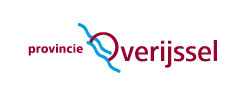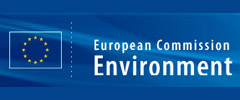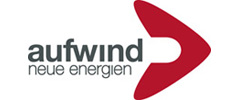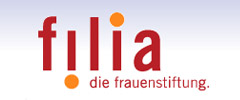Summary Report of the European Environment and Health Committee
21st Meeting of the EEHC 15 –16 may 2006, Oslo
17.07.2006 |Sascha Gabizon
For more information and documents of the EEHC meeting, click here.
Upcoming Meetings:
CEHAPE 16 – 17 October Cyprus: key theme “Water”
EEHC 27 – 28 November Budapest/Sentendere key theme “Water”
15 May
Review of scientific evidence related to CEHAPE Regional Priority Goal 2, “prevent and reduce the health consequencesfrom accidents and injuries and pursue a decrease in morbidity from lack of adequate physical activity by promoting safe, secure and supportive human settlements for all children”
Excellent presentations were given on reduction of accidents, and increase of physical activity for children. Some key points:
Speed kills pedestrians: those who drive kill those who do not
- Traffic accidents are the leading cause of death between 5 – 29 age.
- Speed kills, share of pedestrians struck by car killed/heavily injured increases from 15% at a car speed of 35 km/hr to 95% at 70 km/hro Example: in Austria when 50 km/hr is the lime, 60-70% of drivers go too fast, often the difference between life and death of a pedestrian hit.
EECCA highest road death rate
- EECCA countries have the highest mortality rate of children from accidents, 30-40/100.000 in EECCA region compared to 8/100.000 in EU region.
- Deadly accidents involving cars in EECCA countries have greatly increased due to a the tremendous increase of the car park.
- Russia has the highest rate of road deaths with 25/100.000
- Russia car/ruck park increased with 25% between 1998 and 2004!
- Road death incure a 2,5% of GNP loss
Sweden’s example can save 15.000 death each year
- Sweden and Norway adopted a Vision Zero based on the unacceptability of road deaths as a price for transport.
- If all countries had the same rates as Sweden, 15.000 death could be saved each year!
- For every 1 Euro spend on traffic safety, 3 Euro are saved on health care
- Speed limits save lives, but, difficult to achieve, this is a ‘male’ problem
- Other problem, in most countries drivers have more rights than pedestrians
- In France, 50% mortality from road accident decrease because of speed limitation through automatic camera’s
- Other problem, in UK people travel greater distances each day:
- 1950: 5 miles p/day
- 2005: 30 miles p/day
- 2025: 60 miles p/day ? This is no longer progress, but hypermobility
Domestic Violence
- 1.6 mio people die from violence each year (world wide)
- Domestic Violence is a major problem in EECCA region as weel. Example Kirigstan: 18% of children and 58% of women suffer from domestic violence, probably ‘real’ figures are even higher. Progress has been made, at least now this information is collected (12 years ago there was no data on child abuse) and 4 new laws have been passed. A major problem is sex-trade of young girls.
Higher death rates in rural areas
- Due to accidents with Pesticides
- Less easy access to hospitals
- Lower social status
Obisity and accidents
- It is expected that 33% of the EU population will be obese (overweight)
- One key reason is lack of physical activity linked with trying to reduce accident risks: children no longer walk or bike to work
- Physical activity at school is essential, should be 60 min a day at least
- Norway has schools yards where all winter children do sports outside: ice jumping, walking ropes, skating
- The Norwegian Health Ministry has free fruit for all employees, has showers in the basement and allows 2 hours free for physical activity a week
16 May
Inter-governmental mid-term review in 2007 – scope and agenda, including NGO involvement and applicability of the indicators work
The mid-term review will take place in Vienna, 14-15 June 2007. The Austrian hosts want to attract as high level as possible, hoping for several ministers.
Continue with Children’s Environmental Health
The EEHC members were all in favour to keep focussing on Children’s Environmental Health and therefore not to have a part in the programme of the internminsterial looking at a new theme of ministerial 2009
Youth Pre-Conference
There are plans for a 1 day youth pre-conference. This will be oragnised with the 2 youth representatives now new members of the EEHC (two young girls from Sweden and Finland). It would be good to get the environmental youth organisations involved in this process! (n.b. this probably also means that most of the funds will go to the youth events, and there will be little or no funds for NGOs)
Eco-Forum said to be willing to contribute to the Youth pre-conference, mentioning the activities of the youth conference on toxics and health in Greece this year, the youth water parliaments, and eco-schools. Ideas for main and secondary programme of the inter-ministerial Eco-Forum presented the ideas gathered in a conference call previous to the EEHC meeting. In particular to allow:
- NGO access for a larger group than only the 2 current EEHC representatives
- Work with audiovisual means, e.g. videos made by youth, showing youth dealing with the Regional Priority Goals
- Organise a progressive product fair, presenting concrete alternative products and process
- Organise a round table on policies and best practices
- Focus on the developing child, the biggest life-long impact of pollution comes during pregnancy
- Exhibition space
The Austrian representative said that there would probably be no space for exhibitions, and no possibility for side events.
EU funded project on CEHAPE for some of the countries WHO has fundraised with the EU and obtained a project funded by DG Sanco (health) to help a number of countries develop and implement their CEHAPES, these countries are:
- Bulgaria
- Serbia
- Kirgistan
- Lithuania
- Estonia
- Latvia
- Slovakia
The EEHC members welcome this project, very useful tables also for countries not involved in it. However, some of the other EECCA countries wondered why they had not been asked to take part. This seems to be due to the fact that DG Sanco should focus on EU members states or accession countries mostly.
Eco-Forum suggested to write a letter to the commissionar asking to provide additional funding for more EECCA countries.

































